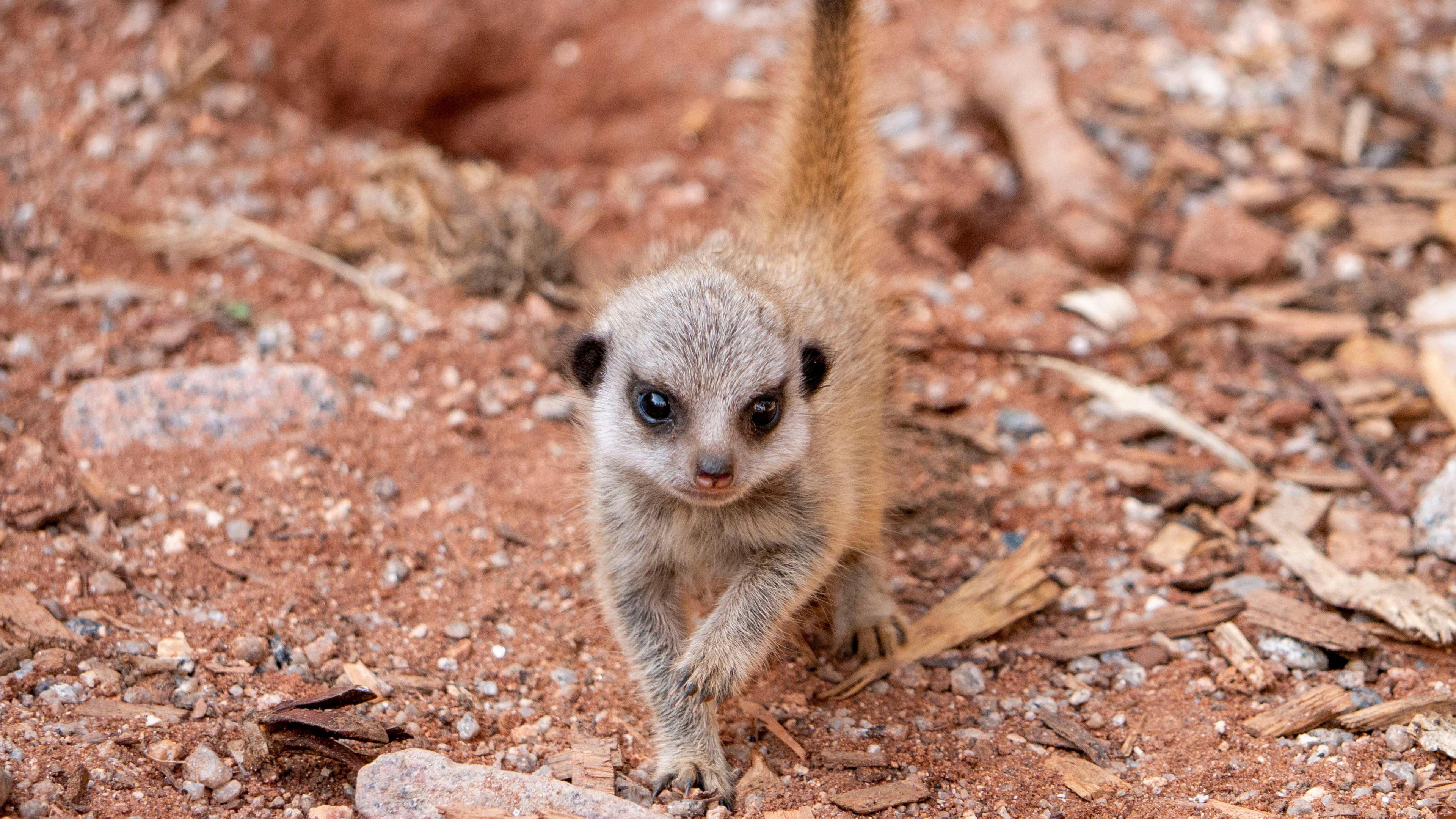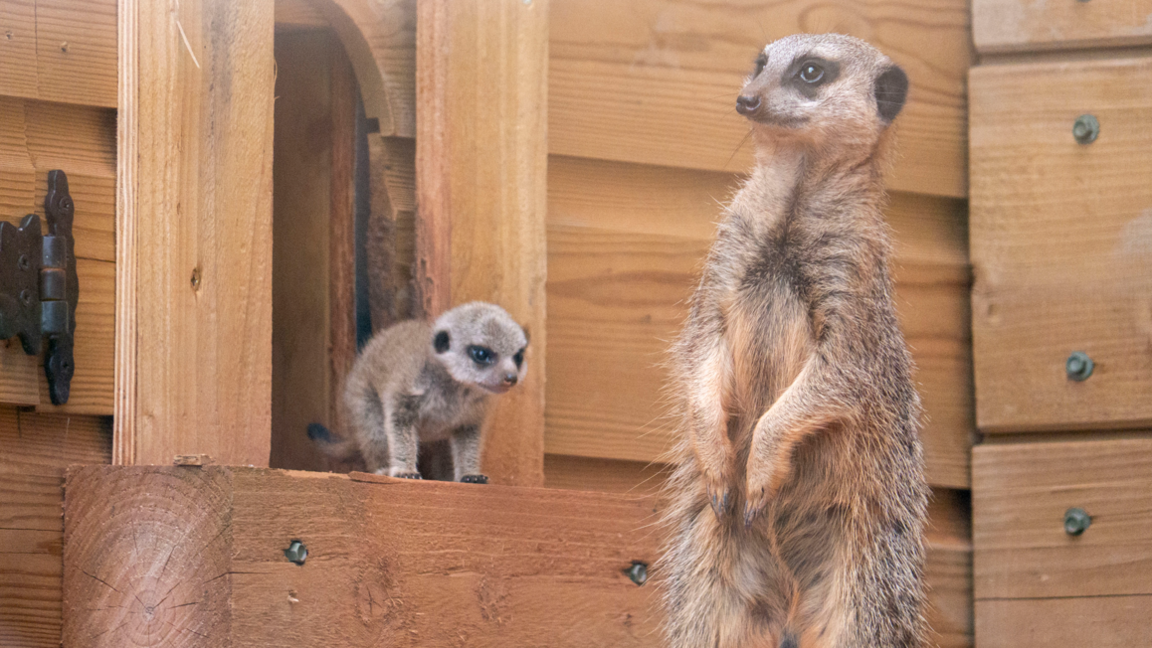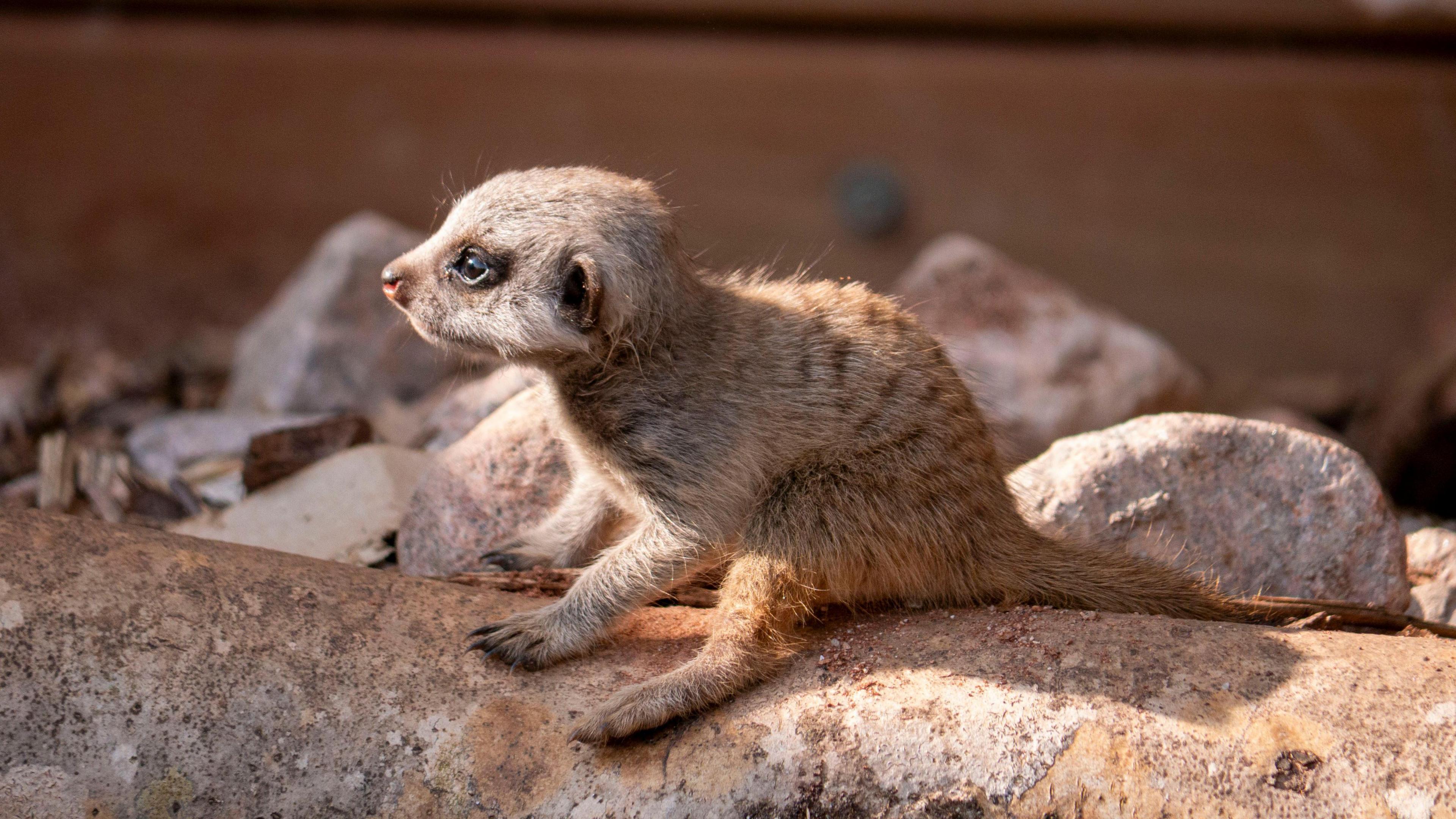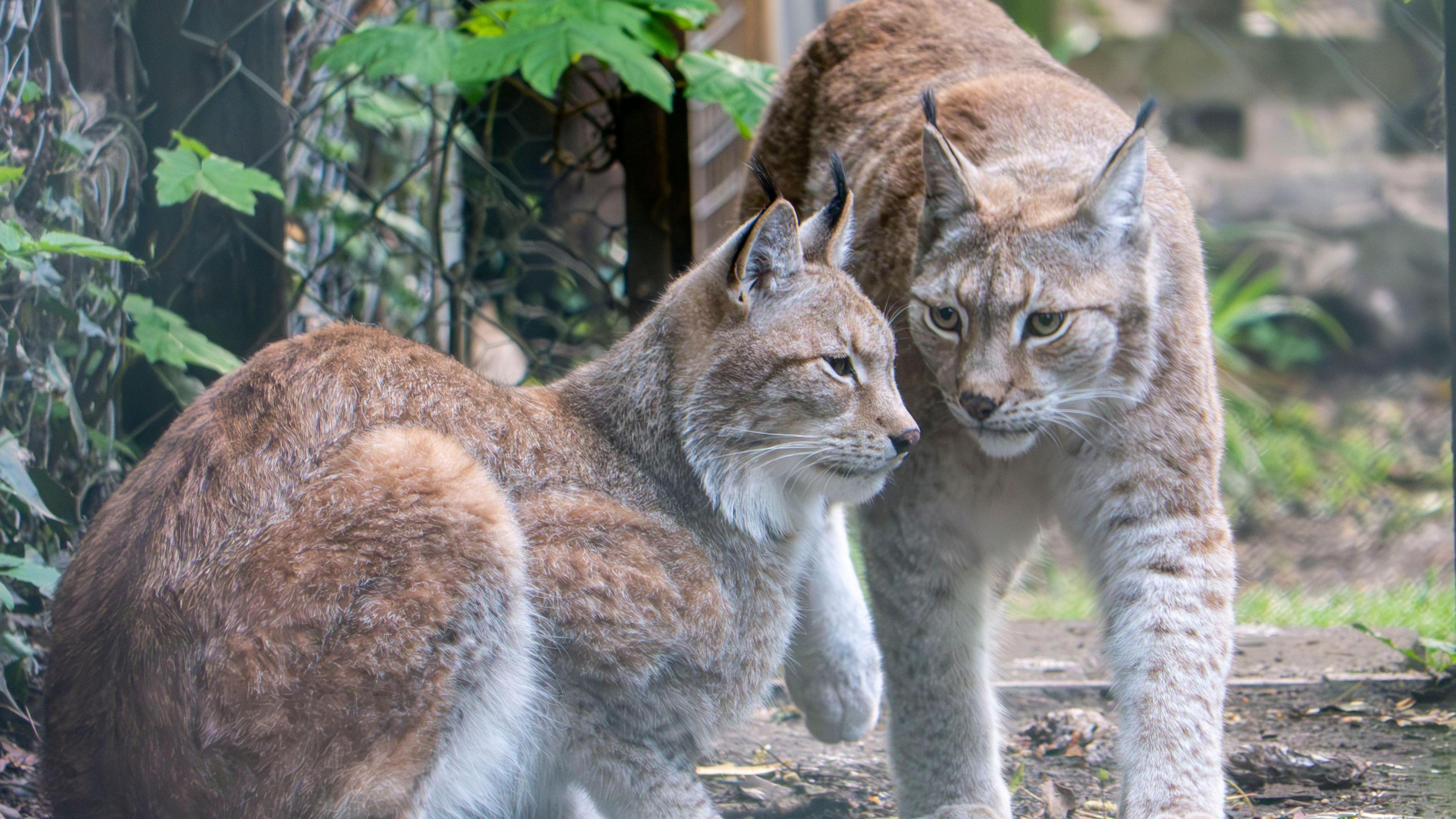School funding helps extend meerkat family

Dartmoor Zoo said it has welcomed two meerkat pups to its Meerkat Manor
- Published
A zoo in Devon has welcomed new meerkat pups, thanks to school funding.
Dartmoor Zoo said the new additions would have not been possible without the support from the Promoting Children in Plymouth (PCIP), which funds the Meerkat Manor.
The slender-tailed meerkats, Ben and Geri, travelled from Knockhatch Adventure Park and Woburn Safari Park and arrived at Dartmoor Zoo in February this year.
Zoo keeper Hannah Ivory said the pair, who bonded quickly, were proving themselves to be "very good first-time parents".

Hannah Ivory said the two pups were the size of the palm of a hand
"Their wild instincts have taken hold and they are very much devoted to each other and are working cooperatively as a team to raise the pups," she said.
Ms Ivory said the pups, the size of a palm of a hand, were almost four weeks old and preferred to make an appearance in the quieter afternoons.
CEO David Gibson said the new arrivals "wouldn't have been possible" without the support from PCIP and the pupils from Sir John Hunt School who helped build Meerkat Manor.
He said: "The successful birth of the two new meerkats is the start of us building a new meerkat mob here."

Dartmoor Zoo asks visitors to keep noise to a minimum around the meerkat pups
Visitors are asked to keep noise to a minimum when visiting the meerkats so they can continue to "grow, explore and thrive".
The zoo said the slender-tailed variety was considered "least concern" on the International Union for Conservation of Nature's (IUCN) red list and they were predominantly found in Savannahs, grasslands and desert areas of southern Africa.
Follow BBC Devon on X, external, Facebook, external and Instagram, external. Send your story ideas to spotlight@bbc.co.uk, external.
Related topics
- Published27 April
